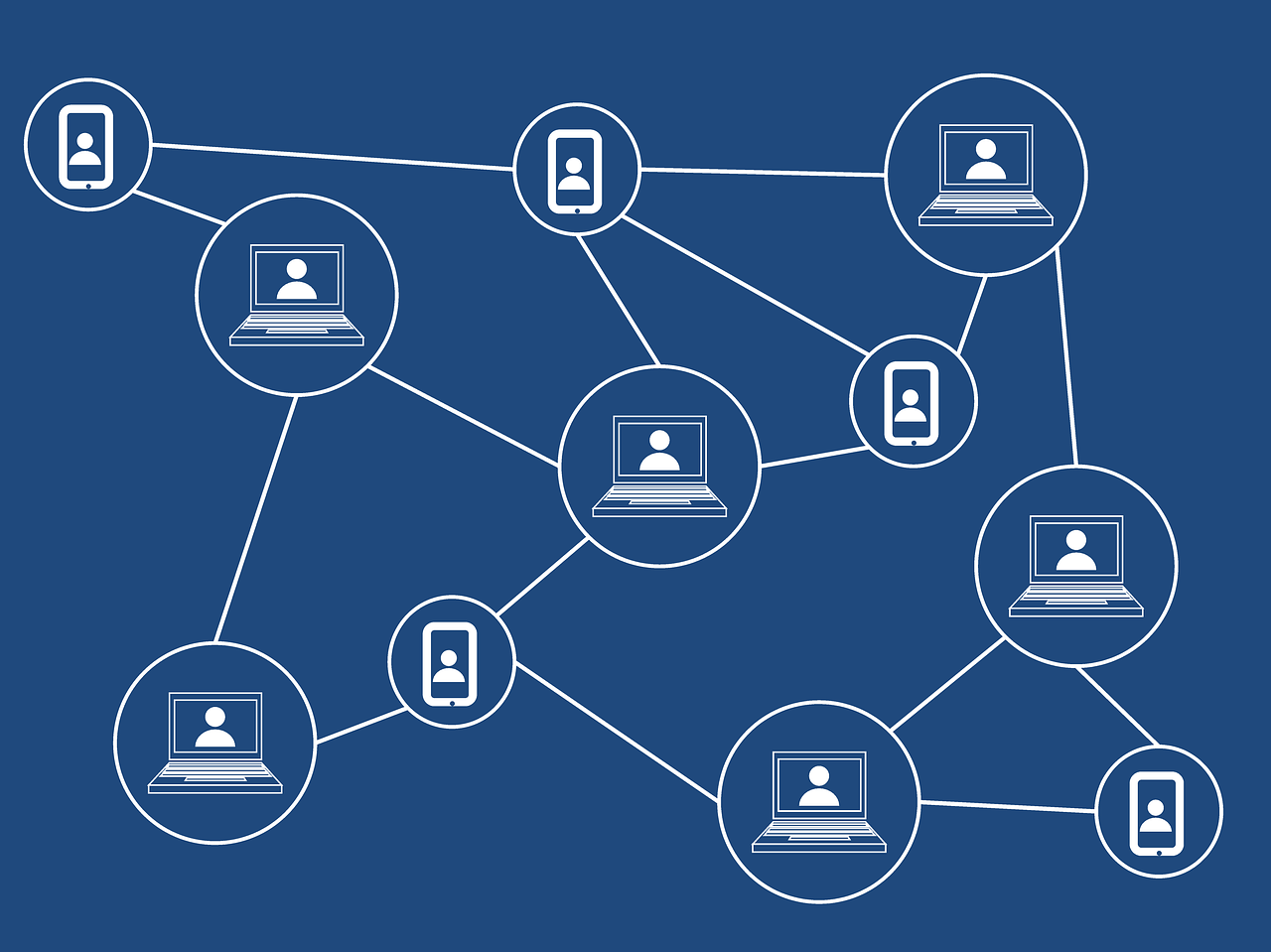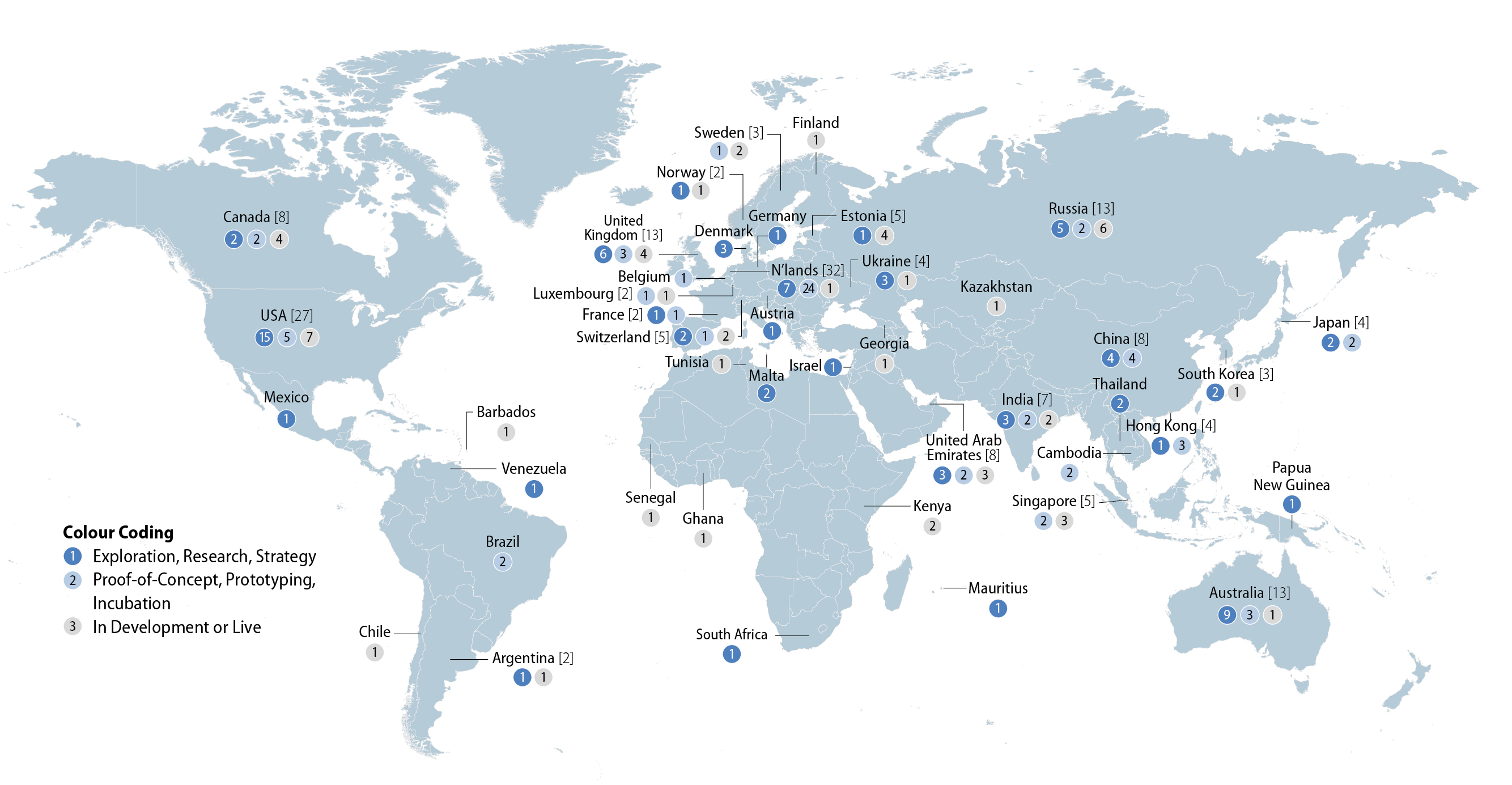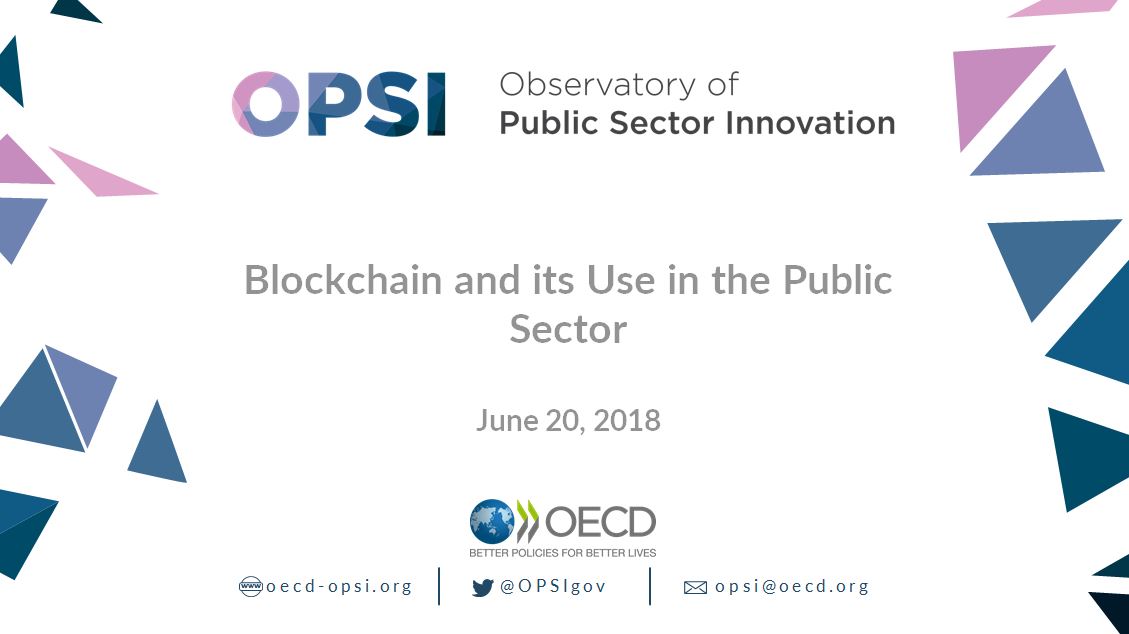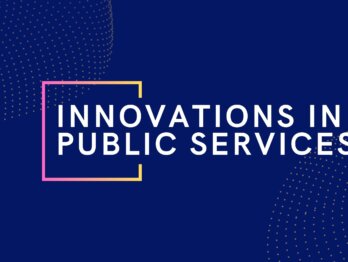New OPSI guide to blockchain in the public sector

Have you heard of blockchain?
Chances are that you have, and perhaps even a bit too much. But exactly what is blockchain? You might have heard a lot of talk about this technology and wondered whether its relevant to you in government. We are excited to announce that OPSI has published a guide for public servants and leaders on blockchain: Blockchains Unchained: Blockchain technology and its use in the public sector. We intend this to be the first in a series of straight-forward and easily accessible overviews of innovation topics, relevant to the public sector.
Get the guide to blockchain
Blockchain has evolved from a niche subject to the hottest tech disruption buzzword, but there is still a lot of confusion about the subject. Without a clear understanding about what blockchain technology is (and isn’t) and how it may be leveraged by governments, its potential public sector impact can be misunderstood or, more often, ignored. Armed with question, public servants have been coming to OPSI for answers and guidance about this emerging technology. To help these government officials, and to further our work surfacing government innovation trends, we’ve developed this guide to:
- Explain simply what blockchain is and isn’t.
- Make the case for public servants to build knowledge and capacity around blockchain.
- Make sense of blockchain’s potential in government.
- Explore existing public sector use of blockchain.
The first half of the guide covers the basic technical aspects needed to understand blockchain. The second half identifies the ways in which blockchain is being explored and implemented in governments today. We’ll save the specifics of the first half for the report, but we’ve covered some of the basics of the second half below.
Blockchain in government
As seen in the map below, there are currently at least 202 government blockchain initiatives in 45 countries around the world.

Of these 202 cases, several key use cases are beginning to emerge.
Top 10 types of Blockchain projects
| Rank | Type of project (count) |
|---|---|
| 1 | Strategy/Research (42) |
| 2 | Identity (Credentials/Licenses/Attestations) (25) |
| 3 | Personal Records (Health, Financial, etc.) (25) |
| 4 | Economic Development (24) |
| 5 | Financial Services/Market Infrastructure (20) |
| 6 | Land Title Registry (19) |
| 7 | Digital Currency (Central Bank Issued) (18) |
| 8 | Benefits/Entitlements (13) |
| 9 | Compliance/Reporting (12) |
| 10 | Research/Standards (12) |
Many of these are in the early research stages, but a number of them are functional proofs-of-concept or implemented services. A few are also cross-government and cross-sector communities of practice dedicated to raising awareness and skills of civil servants, and serving as a place to share ideas and collaborate. The Blockchains Unchained guide covers eight implemented projects or communities.
| Name | Location | Description |
|---|---|---|
| BenBen | Ghana | A Ghanaian property-tech firm leveraging blockchain technology in building end-to-end housing finance and land transaction environments to facilitate transactions between public and private sector stakeholders. |
| Global Blockchain Council | UAE | A large, multi-stakeholder Council, where both private firms and public agencies are invited to understand the technology better, its implications and impacts, and the way forward in terms of experimentation, institutional support, and drafting the future of regulation. |
| Emerging Citizen Technology Office (ECTO) | United States | ECTO aims to consult, gather and make sense of agencies’ experience with Blockchains and ways in which the technology could be better understood within the federal public sector. It brings the subject-matter expertise of many public servants to the fore, while presenting the technology to others in digestible ways. |
| Project Ubin | Singapore | The Monetary Authority of Singapore partnered with R3, a consortium of banks and regulators specialised in digital ledger technologies, to develop and apply a Blockchain-based transaction process with a digital Singaporean dollar. This would not only allow incorruptibility through a decentralised trust system, but it would allow transactions to run 24 hours a day with no centralised – i.e. human-based – checks required. |
| Sweden Land Registry | Sweden | The Sweden Land Registry Authority seeks to “explore and investigate if the Blockchain may be an alternative to support the process of a real property transaction; sale and purchase; finance and mortgage; apply and register title/ownership; instead of having the traditional technical database and web application solutions.” |
| Blockchain Trust Accelerator | United States | Under the auspices of the New America think-tank, the BTA develops as a form of independent Blockchain lab to promote and accompany accountable and transparent technologies – and the development of like-minded policies. It seeks to help people separate the real from the fake. |
| Vehicle Wallet | Denmark | A public private partnership where Blockchain-based innovation is used to co-create a proof of concept on registered digital asset management for handling a vehicle’s life cycle process. All data concerning the car is saved in one distributed ledger and creates one agreed and shared record of the vehicle history as it is transferred across the supply chain. |
| Blockchain Talent Hackathon | Mexico | A five-day hackathon to address a series of problems to be addressed with Blockchain. The winning team developed a prototype of public tenders smart contracts that allows the public bidding process to be reliable, allows for citizen participation, and helps to ensure that the winner of the tendering process is the one that generates greater social benefit. |
Summary of blockchain report
In addition to the report, we have also created a set of slides to help innovators understand the contents of the Blockchains Unchained guide at a summary level. Please feel free to use either the PDF or PPTX versions however you would like.
Connect with OPSI
Interested in public sector innovation? Feel free to get in touch with us at [email protected] or @OPSIgov. We also encourage you to join our OPSI LinkedIn group and our new digital community on the OPSI platform to exchange ideas with fellow innovators. You may also sign up for our newsletter to receive innovation updates.












